
UNC football rumors: Tar Heels expect good news on Tez Walker eligibility
Great news is expected to come out for UNC football player Tez Walker sometime next week.The NCAA needs to do the right thing and make UNC football player Tez Walker eligible for 2023.Walker committed to North Carolina Central out of high school. With the Eagles' 2020 season being cance...
1970-01-01 08:00
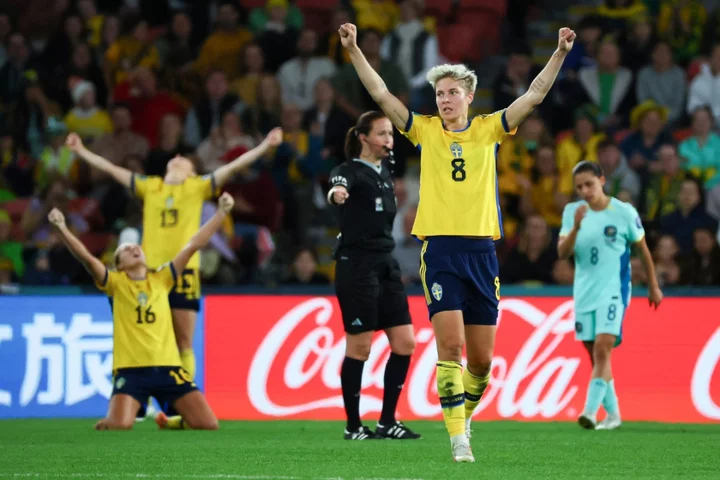
Sweden beat Australia to win World Cup third-place play-off for fourth time
Sweden struck in either half to retain their World Cup best of the rest status with victory over co-hosts Australia in the third-place play-off. A Fridolina Rolfo penalty and fine Kosovare Asllani strike secured a 2-0 win for Sweden, who never looked in danger of losing to the home favourites in Brisbane. Peter Gerhardsson’s side responded magnificently to their last-minute semi-final exit at the hands of Spain, outclassing Australia to win the third-place play-off for the fourth time in their history. Sweden started quickly and set out their stall early on as Arsenal forward Stina Blackstenius got in on goal within the opening two minutes, her low shot turned away by Mackenzie Arnold. Just as the hosts looked to be getting a foothold in the game, Sweden would take the lead as a penalty was awarded following a lengthy VAR review of Clare Hunt’s trip of Blackstenius’ trailing leg. Rolfo, who scored the winner when the two nations met in the 2020 Olympics semi-finals, made no mistake from the spot with Arnold beaten despite diving the right way. Sweden came close to doubling their lead in first-half stoppage time but a fine low save from Arnold kept out a Filippa Angeldahl strike that flashed through a crowded penalty area. Having beaten England to finish third four years ago in France, Sweden all-but secured another bronze medal as they widened the margin just after the hour. A pacey counter-attack saw Blackstenius shake off the attentions of the Australia defence before squaring for Asllani to hit one of the goals of the tournament, beating Arnold with a strike from the edge of the box. Any hopes that Australia could launch an unlikely comeback suffered a blow when captain Sam Kerr hobbled off for treatment on her foot. The Chelsea striker suffered a calf injury on the eve of the finals, dampening her impact as she was not fit enough to start a game until the semi-final loss to England. She returned to the pitch but, by that stage, Sweden were in control of the tie and left the home fans cheering a valiant effort from Australia, who had to settle for fourth place. Read More Olga Carmona fires Spain into first Women’s World Cup final amid late drama How England changed the World Cup and found their greatest strength Jorge Vilda: Spain’s World Cup coach at the heart of a civil war
1970-01-01 08:00
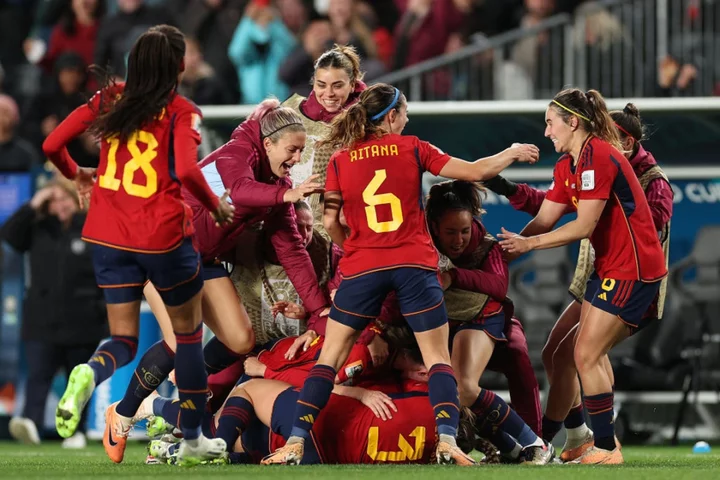
Jorge Vilda: Spain’s World Cup coach at the heart of a civil war
With so much still unsaid around this Spain team, three statements over the last 48 hours stood out all the more, that illustrate much of the story of their Women’s World Cup run. One was Tere Abelleira immediately after the semi-final victory over Sweden in Auckland. “Now we can talk about a ferocious team spirit,” she said. It was as the midfielder was saying this in the Eden Park mixed zone that Jenni Hermoso was striding behind and shouting: “Come on! We’re in the final of the f***ing World Cup!” That is now the most important fact of all. It was amid this mood of jubilation, however, that the abrasive Spanish federation boss Luis Rubiales came out with something that was much more open to dispute. “What we have endured is a lot,” said Rubiales. “That questions have been asked of Jorge Vilda, who is a hard-working man, a world-class coach, who has turned down other federations that have offered more money and stayed with Spain. We have stuck with those who have always wanted to be here, that have valued the great work that he has done to grow, and we have forgotten the people with resentments. He has continued working with his people and not paid attention to those who wanted to destroy him.” It was the first time at this World Cup that anyone in the camp has publicly raised the squad mutiny that has shaped Spain’s entire run, since most of it has been set aside in an uneasy truce. The description of “people with resentments” sounds like the most cavalier way to blow all this up, especially as the biggest game of all remains. While that “ferocious team spirit” should be more than enough to keep Spain together through the build-up, there is still the possibility for a huge fall-out if this team is defeated by England on Sunday. Rubiales’ words only add another edge to a situation that is already hugely complicated, both in terms of how it came to this and how everyone is dealing with it. It is not just about Vilda, although he is the most public face, visibly ignored by some players in victory but embraced by others. The 15 players who last year sent the email resigning from the national team – with the tacit support of Alexia Putellas, Jenni and Irene Paredes – had several complaints. Most focused on how oppressively disciplinarian Vilda’s managerial regime was but they were also unhappy about how outdated the entire international set-up seemed. Some of the arrangements, like travelling long distances on bus or not having staff in certain key roles, fell well below their club standards. They did not feel any of this gave them the best possible chance of fulfilling a generation of talent. Unsaid but undeniably perceived by so many around the situation is that some of the players do not think Vilda is a good enough manager. There is at least a fair argument to this, even as Rubiales protested he is “a world-class coach”. Many would certainly dispute that. That Vilda has such a strong relationship with Rubiales is just another complication. With the federation risking the chance of a generation, and some players realising the same, overtures were made. Hermoso and Paredes returned, opening a way back. The federation’s director of women’s soccer, Ana Alvarez, met with every single player individually over May and June. All complaints were heard. Only some players were accepted back, and that involved having to send an email declaring their willingness to be called up again. They were Ona Batlle, Mariona Caldentey and – above all – Aitana Bonmati, perhaps the best player in the world right now. Vilda decided to stick with the players involved in preparation for this World Cup, just as Rubiales decided to stick with him. It has resulted in a squad that is partly made up of rebels and replacements. Some have set aside grievances for the greater good. Others are grateful to Vilda for persisting with them. All have overlooked this for the time being, which was why Rubiales so abrasively addressing it before the final is such a risk. It has only complicated already conflicted feelings around this Spain team. A growing view at this World Cup and back home in Spain has been that most support the players but do not want the national team to win because that is a vindication for the federation and Vilda. It doesn’t help Rubiales that he is not a popular figure, commonly seen as one of the most divisive in Spanish sport. There is also some inevitable backlash against the players, since there is the constant threat of the issue getting subsumed into the usual culture wars, but this is where the general public parking of the mutiny has at least offered something like a positive. One figure with insight into the situation spoke of how there can be internal conflict for some players, too. They want to do the best for themselves, but know that every success makes the federation and the manager look good. For the moment, at least, it has been a more unusual example of the classic dynamic of adversity creating success. There has also been compromises and common ground. Vilda’s staff have softened some approaches. The federation has listened and acted on other concerns, such as the willingness to move camp when the players were bored out of their minds in Palmerstown North. Some of Vilda’s calls have worked, such as bringing teenage sensation Salma Paralluelo on as a substitute to break games. Others would say that’s just an obvious move. There is also a more obvious fact here. In a historic football shift that long preceded Rubiales, and greatly influenced the English Football Association, Spain were one of the first wealthy western European football cultures to implement the kind of coaching revolutions that has characterised the modern game. The country industrialised talent production, while going further than most similar federations in underpinning it with a defined football identity. While that has almost come back on itself in the men’s game, creating this self-repeating and now almost self-defeating cycle of the ball endlessly getting circulated, the more developmental stage of women’s football means it can be much more effective. Spain are one of the few teams at this World Cup with such an ingrained style, made in Barcelona, that goes much deeper than any coaching decision. The wider national coaching structure has meanwhile honed the natural talent of stars like Putellas and Bonmati, producing elite athletes that also have that resilience that has been so apparent at this World Cup. The likelihood is that this supersedes any of Vilda's decisions. The squad’s mentality has helped, which is why they didn’t buckle after the collapse against Japan during the group stage. In a strange way, that 4-0 defeat might even have served them, helping to solve further tactical issues. Bonmati even said at the time “this is going to unite us more than ever”. It could mean Spain become the only world champions in either men’s or women’s football to have also lost by more than three goals in the same competition, other than West Germany 1954. Japan 2011 are the only previous Women’s World Cup winners to have even lost a game, adding one other little twist. There is then one final layer. It was the frustration at a defeat to England in the Euro 2022 quarter-finals that brought all this to a head. It is now an even bigger game against England that might fully illustrate how they have adapted. A lot may remain unsaid after Sunday but, to use an old Spanish football saying, some of the truth will be on the pitch. Read More England stand on the brink of history – and a moment to change the game forever Jess Carter: Prospect of facing Spain in World Cup final will not sway my nerves England Captain Millie Bright: ‘Lionesses need to play the game of our lives’ England stand on the brink of history – and a moment to change the game forever Jess Carter: Prospect of facing Spain in World Cup final will not sway my nerves England Captain Millie Bright: ‘Lionesses need to play the game of our lives’
1970-01-01 08:00
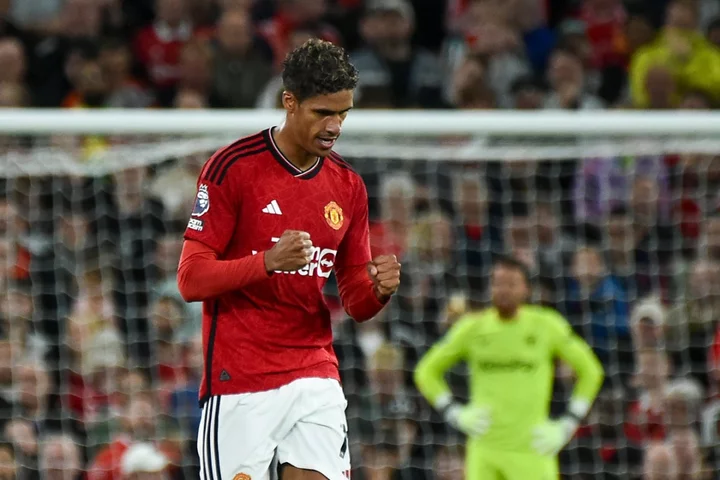
Is Tottenham vs Manchester United on TV? How to watch Premier League fixture
Manchester United look to capitalise on their narrow Premier League win to open the season and retain their perfect start when they travel to Tottenham. Raphael Varane’s strike was enough on Monday to secure a 1-0 win, despite Wolves wasting chances and being denied a penalty late on. Erik ten Hag will look to see more chemistry between Bruno Fernandes and Mason Mount, while Spurs boss Ange Postecoglu will be encouraged by his side’s display at Brentford. Without Harry Kane, the Australian will hope the likes of Son Heung-min, James Maddison and Richarlison lead this new era in north London. Here’s everything you need to know about the fixture: When is Tottenham vs Man Utd? Tottenham vs Man Utd is due to kick-off at 5.30pm on Saturday 19 August at Tottenham Hotspur Stadium in London. How can I watch it? Viewers in the United Kingdom can watch the match live on Sky Sports Main Event and Sky Sports Premier League, with coverage on the channels from 5pm. Subscribers can stream the game via the Sky Go app. Team news Christian Romero has recovered from a head injury, but Spurs will likely be without Bryan Gil (groin), Rodrigo Bentancur (knee), Ryan Sessegnon (hamstring), Fraser Forster (back) and Alfie Whiteman (ankle). Tanguy Ndombele could be overlooked once again too, although this looks like a tactical call from Postecoglu. Lisandro Martinez is a doubt with an ankle injury, meaning Victor Lindelof could step in for the Argentine. Rasmus Hojlund (back), Kobbie Mainoo (ankle), Tyrell Malacia (knee), Amad Diallo (knee) and Tom Heaton (calf) are all set to miss out here. But former Spurs man Christian Eriksen could factor into Ten Hag’s plans after the disjointed partnership of Mason Mount and Bruno Fernandes in midfield against Wolves. Predicted line-ups Tottenham XI: Vicario; Emerson, Romero, Van de Ven, Udogie; Bissouma, Skipp, Maddison; Kulusevski, Richarlison, Son. Man Utd XI: Onana; Wan-Bissaka, Varane, Martinez, Shaw; Fernandes, Casemiro, Eriksen; Antony, Rashford, Sancho. Odds Tottenham win 9/5 Draw 11/4 Man Utd win 13/10 Sign up to bet365 using The Independent’s unique bonus code by clicking here Prediction Look for goals here. Spurs 2-2 Man Utd Read More Welcome to the remodelling of Mason Mount Harry Maguire must ‘fight for his position’ after rejecting move away from Man Utd Mason Greenwood timeline: How the Manchester United star fell from grace Fulham vs Brentford LIVE: Latest Premier League updates Liverpool vs AFC Bournemouth LIVE: Latest Premier League updates Wolverhampton Wanderers vs Brighton & Hove Albion LIVE: Latest Premier League updates
1970-01-01 08:00
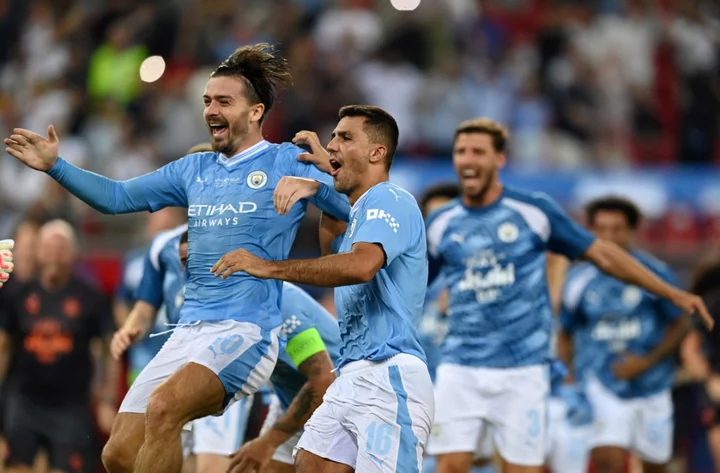
Is Man City vs Newcastle on TV? How to watch Premier League fixture
Fresh off an opening-day win over Burnley and a hard-fought midweek Super Cup triumph over Sevilla, Manchester City face an early test of their title credentials by welcoming Newcastle United to the Etihad Stadium. City were pushed all the way by Sevilla on Wednesday night before eventually winning on penalties but it was additional stress they probably could have done without and Newcastle may sense an opportunity, especially with the injuries City are facing – talisman Kevin De Bruyne set to spend months on the sidelines with a hamstring concern, while the likes of John Stones, Ruben Dias and Bernardo Silva are all either confirmed out or doubts. Meanwhile, the Magpies will be full of confidence after brilliantly beating Aston Villa 5-1 on the opening day to suggest that they’re ready to build on last season’s top-four finish. A result at the Etihad would certainly be a statement from Eddie Howe’s men but they might just fancy catching City at an opportune moment, even though they’ll be led in attack by the irrepressible Erling Haaland. Here’s everything you need to know about the fixture: When is Man City vs Newcastle? Manchester City vs Newcastle is due to kick-off at 8pm on Saturday 19 August at the Etihad Stadium in Manchester. How can I watch it? Viewers in the United Kingdom can watch the match live on TNT Sports 1 and TNT Sports Ultimate, with coverage on the channels – from which BT Sport was rebranded over the summer – from 7pm Team news Pep Guardiola has a few injury concerns as John Stones (muscle injury) and Bernardo Silva (illness) have joined now long-term absentee Kevin De Bruyne (hamstring) on the sidelines. Ruben Dias is only a “maybe” to play following last week’s concussion, although he was on the bench against Sevilla in midweek, while Julian Alvarez was “in discomfort” before that Super Cup clash and could only appear as a late substitute, although will be pushing to start. Newcastle’s injury news is ‘as you were’ with no new issues and no recoveries following their opening day thrashing of Aston Villa. That means Javier Manquillo (groin), Joe Willock (hamstring) and Emil Krafth (knee) remain unavailable. The likes of Callum Wilson, Harvey Barnes and Jacob Murphy, who all impressed off the bench against Villa, will be pushing for starts but Eddie Howe may be loathed to disrupt the rhythm of his team. Predicted line-ups Man City XI: Ederson; Walker, Akanji, Ake, Gvardiol; Rodri, Kovacic; Foden, Alvarez, Grealish; Haaland Newcastle XI: Pope; Trippier, Schar, Botman, Burn; Tonali, Guimaraes, Joelinton; Almiron, Isak, Gordon. Odds Man City win 7/10 Draw 3/1 Newcastle win 15/4 Sign up to bet365 using The Independent’s unique bonus code by clicking here Prediction A rare week where City look fallible and with Newcastle flying high, they could earn a draw at the Etihad. Man City 1-1 Newcastle Read More Super Cup is crucial to Man City’s season but it’s not about the trophy Manchester City’s Super Cup victory shows that Cole Palmer is a gem to be treasured Kevin De Bruyne facing up to four months out and may require surgery Fulham vs Brentford LIVE: Latest Premier League updates Liverpool vs AFC Bournemouth LIVE: Latest Premier League updates Wolverhampton Wanderers vs Brighton & Hove Albion LIVE: Latest Premier League updates
1970-01-01 08:00
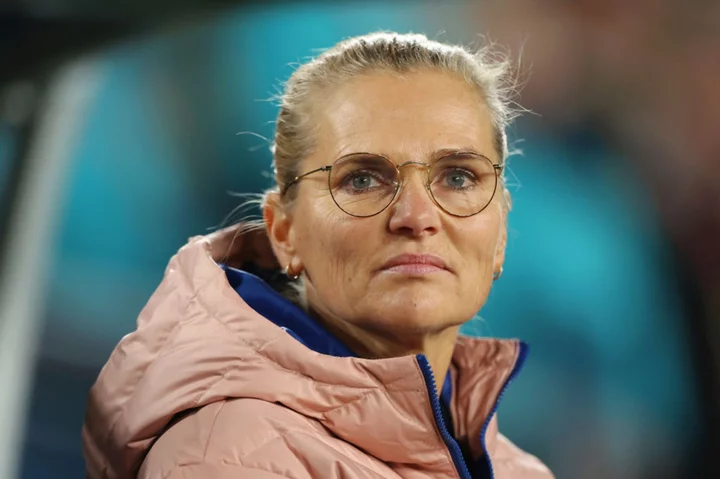
England stand on the brink of history – and a moment to change the game forever
In the final days before a World Cup final, when every touch on the training ground is charged with greater tension, it’s still difficult not to revert to the lightness of youth. That is where the very meaning of all this is first set. “When I was a kid we used to play ‘World Cup’ in the garden, where we had to score to stay in,” striker Alessia Russo smiles in England’s base. “It was having fun and playing free… as a kid growing up, to think we’re playing in a World Cup final in a couple of days is a special feeling.” It is a feeling that is universal when it comes to this game, because this game is truly unique. Nothing else comes near. It is why everyone is here. Jenni Hermoso expressed exactly the same emotions in the Spain camp. “Everything I do on the pitch I learned it on the street, playing in my neighbourhood, playing in the park underneath my grandparents’ house… of course you imagine winning, you visualise going back to Spain with the World Cup. I hope that dream becomes reality.” The manner these players inspire next generations means these simple joys should not be forgotten, as all of these players seek to do something that will be remembered forever. It is this elementary excitement that really makes such an occasion, although the 2023 World Cup final still involves a seriousness that goes beyond elite players doing what is necessary to win “the game of their careers” and Sarina Wiegman’s immense decision over Lauren James. Sunday’s match at Stadium Australia is the most meaningful fixture in women’s football history - which may sound a basic statement, but has more to it than that. It is a description that is going to be true with every World Cup final in a rapidly expanding women’s game, but feels especially important when the hosts embrace it like Australia have. Audience records have been broken. Barriers have been left far behind. This has been a truly game-changing World Cup, in so many senses. That spread of the sport has been reflected in a thrillingly unpredictable World Cup, where a later start has helped a tranche of developing football nations further bridge the gap to a more defined top level. The mismatches never happened. The tournament was instead intense from the start, characterised by upsets that became less surprising as it went on, but no less entertaining. Australia-New Zealand 2023 has had much that you would want from a World Cup: fine goals, dramatic moments, engaging matches, great storylines, all imbued with deeper themes. The most influential was probably the demise of the deposed champions, USA, that was made all the more stunning by the manner they went out. The millimetres of that penalty decision reflected the closing gaps. It all means a highly entertaining World Cup now has a fittingly high-quality final, contested by two of its finest sides; the European champions against a team driven by Barcelona’s Champions League winners. The persistence of England and Spain still fits with the trend of upsets, while explaining the wider competition. Both have overcome huge problems to be here. Spain are perhaps the most strife-torn squad to have ever made it this far in any World Cup. The feeling with England was that you can’t lose players like Leah Williamson, Beth Mead and Fran Kirby and expect to win a World Cup. Both have overcome all this because of what is maybe the single biggest factor in the women’s game now. They are two wealthy, western European countries that have industrialised talent production through infrastructure overhauls. This has been met by more investment in the women’s game than most, even if that still has some way to go. It is symbolic that both finalists have had considerable complaints related to finance, Spain with the preparation standards that were one of the reasons for a rebellion, England with an ongoing dispute over bonuses. Both echo issues throughout this tournament, from Nigeria to Australia, illustrating why Gianni Infantino shouldn’t have been as predictably self-congratulatory as he was on Friday. The Fifa president was nevertheless correct on interest in this World Cup, as the governing body for once deserve credit for their own investment. “Over a million spectators in the stadia, over one billion viewers on TV,” Infantino said. “It was a turning point for women’s football. But this World Cup here has been truly transformational, not only in Australia or New Zealand but all over the world.” He’s right. That turning point needs to keep rolling into further revolutions. Other nations need to at least aim for what England and Spain are doing. On the Stadium Australia pitch itself, their resources have created a compelling football contrast. It’s a classic case of ideology against pragmatism. Spain’s coaching culture has created what is by far the strongest and deepest football identity in the women’s game, which is why controversial coach Jorge Vilda is almost irrelevant in that regard. The passing-pressing game executed by high-quality players like Aitana Bonmati and Alexia Putellas supersedes almost everything, including most opposition. But maybe not England. The FA’s resources have instead brought the best manager in the women’s game, who has marked herself apart through the ability to adapt to virtually any situation. If the story of Spain’s run to the final has been setting aside one defining problem, the story of England’s has been solving a series of developing problems. Wiegman has responded to everything with inspiration, from injuries to the suspension of James. The team, in her own words, have “grown” through this World Cup. Wiegman now has to come up with a response to Spain in the space of just three days, since their possession will dictate the game. There is at least a lot to go off, and not just the footage her staff pored over from Wednesday night to Friday afternoon to have ready for the preparation sessions before the final. Facing the specific Spanish approach has been one of the most clearly defined tests in the sport, going back two decades in the men’s game. Managers know they will seek to dominate the ball as high up the pitch as possible. It can be exhausting. The challenge is to disrupt that while managing space and offering a threat of your own. That might actually suit Wiegman’s new 3-5-2, another mid-tournament solution. The fact so many of her attackers have come to scoring form at the right time only bolsters that, especially as Spain have a capacity for chaos in their own area. The great danger is tournament revelation Salma Paralluelo causing havoc at the other end. It remains one of the exhilarating truths of football. There is almost no defending such a rapid turn of direction. That only informs Wiegman’s huge decision on James, though. It might well be the most important decision in the history of English women’s football, given what it could mean. It’s just as well Wiegman can bear the responsibility, as she specifically spoke about the need to stop talking about 1966 and all that. She was almost totally unwilling to talk about her own personal feelings of losing the last final in 2019 with Netherlands, after all. She doesn’t think that helps anyone. The Spanish media were still too willing to compare the James decision to Jimmy Greaves. There is an obvious allure to putting such a player straight back in against a backline as open as Spain’s. That Spanish flaw may well create another historic anomaly. Having been eviscerated 4-0 by Japan, Spain could become the first team to have lost by more than two goals in a Women’s World Cup and still won it. The only previous champions to have lost at all were Japan 2011, the historic quirks only amplified by how it was England who beat them. Wiegman’s side can offer a precedent of their own, though. They would become the first world champions to have beaten someone from every confederation, truly living up to the title. Both of these teams would really be the worthiest of winners, though, and there’s one piece of history that is more important than any other. One country will win the Women’s World Cup for the first time. They’re going to find there’s nothing like it. The childhood dream is one thing. The reality is something else. It will be revealed on a charged Stadium Australia pitch on Sunday. Read More Sarina Wiegman: ‘Stop talking about the result — we know what we want’ Ella Toone or Lauren James? Sarina Wiegman has already made the biggest decision of England’s World Cup Infighting and rebellion: How Spain overcame themselves to reach edge of Women’s World Cup glory ‘Disappointing’: Prince William blasted by Lionesses fans for missing Women’s World Cup final in Australia Women’s World Cup LIVE: Sarina Wiegman says ‘everyone’s talking about 1966’ and backs England to end hurt Where to watch the Women’s World Cup final between England and Spain
1970-01-01 08:00
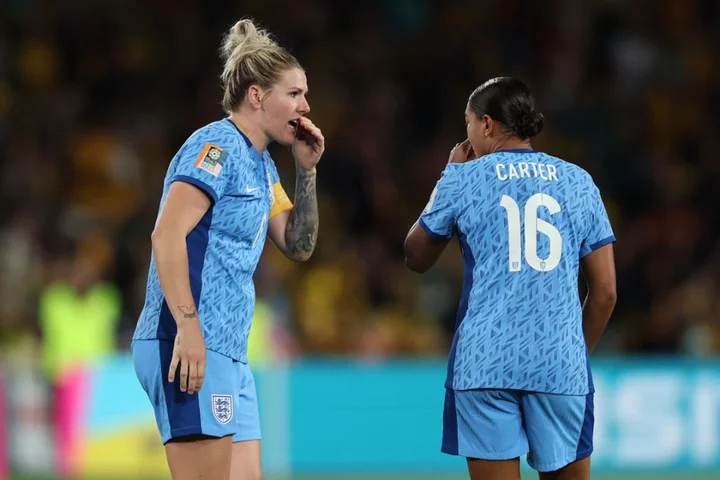
How England and Sarina Wiegman changed the World Cup and found their greatest strength
England were “struggling”. Two games into the World Cup and the final seemed a long way away. Despite the opening wins against Haiti and Denmark, England needed to change. While players and managers at major tournaments often repeat the line that results are all that matter, Sarina Wiegman was more concerned with how her side were underperforming. The Lionesses were faced with a lack of creativity, and a vulnerability to the counter-attack. But Wiegman and her coaching team had a back-up plan. A change in formation was an idea she and her staff discussed in April when they were designing a way for England to be more unpredictable at the World Cup. A 3-5-2 system was identified as a way to get more from certain players in the squad and play to their strengths, while also giving their opponents something new to think about. Still, when Wiegman was faced with the decision to rip up England’s approach and start again, she required courage and conviction to commit to it. She found it in the form of her assistant Arjan Veurink, who has been at Wiegman’s side for the past four major tournaments, previously with the Netherlands and now with England. With the injury to Keira Walsh following England’s win over Denmark, a blow that at the time appeared to rule the midfielder out of the tournament, Veurink went to Wiegman and said the time had come. “You’re completely right,” Wiegman replied. “This is the moment.” From there, the trait of England’s World Cup campaign became their adaptability, and the unsung stars became the new back three that was suddenly pulled together for the final group game against China. “The way they explained the reasons why and what they wanted to do was so easy to adapt to it,” said defender Jess Carter who, alongside captain Millie Bright and the exceptional Alex Greenwood, has been one of the revelations of England’s tournament. Carter had been dropped to the bench against Denmark and didn’t think she would play again, after arriving at the World Cup not expecting to play at all. But the 25-year-old has been ever present throughout the knockout stages at right-centre back, next to her Chelsea teammate Bright and with Greenwood on the opposite side. In England’s progress to their first World Cup final, Wiegmans’ new-found defence has emerged as its key strength, and has been the cornerstone of their resilience and mentality. There has been a balance to it, with each player in the back three complementing the other. Carter is the calm, assured defensive cover, brilliant in the one-on-ones. Bright is England’s rock, an aggressive front-foot defender who is then as dominant in the air as anyone in the world. Greenwood has arguably been England’s player of the tournament. On the left side of the three, her ability to pass through the line has allowed England to play out, while her sense to surge forward on the ball has frequently relieved pressure. It has seemed a natural connection, and how England have needed it. “It clicked really quickly,” Carter said. “Our honest communication with each other is something that’s really important. We tried to figure out really quickly what one another needed. I think we’re a very confident team and everyone’s got so many different types of experience. Seeing out games is something that is part of that experience.” In the last-16, they withstood the introduction of Nigeria’s Asisat Oshoala and then played extra time with 10 players after Lauren James’ red card. In the quarter-finals, Carter eventually restrained Colombia’s star forward Linda Caicedo, and Bright headed clear everything that was thrown into the box. Sam Kerr had her moment in the semi-finals, but England won the tactical battle against the Matildas and did not blink when the hosts equalised in Sydney. At 1-1, Carter made a crucial intervention when Cortnee Vine’s shot was saved by Mary Earps, which turned the game. But in the final, England’s back three face its biggest challenge yet. As Spain have overcome themselves to reach their first Women’s World Cup final, it was only poor finishing that resulted in their run to the final being closer than expected. They got away with it against the Netherlands in the quarter-finals, and Sweden in the semis, but Spain created high-quality chances at a far greater rate than any of the four semi-finalists. While they have a way of missing chances, Spain’s build-up through a technical midfield that has the outstanding talent of Aitana Bonmati has been intricate and precise, and often a level above what England have shown. They will also offer threats that England have yet to face at the tournament, mainly, should head coach Jorge Vilda keep the same system, a false-nine in Jenni Hermoso. In the middle of England’s back three, Bright has relished the duels with the opposite central striker and come out on top since Wiegman’s switch. Hermoso, though, is different: when Spain’s record goalscorer drops into midfield to help with their build-up play, it could drag Bright into some uncomfortable positions, or isolate England’s captain. Spain’s style also features wingers who stay high and wide and another challenge for England will be how they deal with them. It could fall to England’s wing-backs Lucy Bronze and Rachel Daly but when Spain have established possession, their full-backs Ona Batlle and Olga Carmona must also be accounted for. Meanwhile, if Carter and Greenwood are pulled away from Bright to deal with Spain’s wide threats, it only creates space for Bonmati and Alexia Putellas in the inside channels, the areas where Spain’s two stars can cause the most danger. It may be, however, that Spain’s most dangerous threat does not even start. Salma Paralluelo has come off the bench to devastating effect to score in both the quarter-finals and semi-finals, with the winner against the Netherlands and then the opener against Sweden. The 19-year-old, who was tipped to be a future Olympic sprinter before signing for Barcelona at the start of the season, has electrifying pace and has used it to blow Spain’s last two games wide open, while also providing the lethal finishing her team desperately required. If Paralluelo is kept to the bench, her arrival will signal the moment where the game changes, although England could then mirror it now Lauren James is back for suspension in time for the final. Indeed, given how both teams have reached the final, the appearance of James should worry Spain a lot more than the potential impact of Paralluelo. While England’s defence has been the backbone of their tournament, Spain can hardly say the same about theirs. While England have the pragmatic nous of European champions, Spain are likely to start with the inexperienced goalkeeper Cata Coll and centre-back Laia Codina. Both were parachuted in for the knockout stages, following Spain’s 4-0 defeat to Japan in the groups, and if they start the final, it will only be Codina’s sixth match for Spain, and Coll’s fourth. Spain have shown vulnerabilities late in games and conceded late goals against the Netherlands and Sweden, even if they ultimately recovered. With that, and in many other ways, Spain and England’s journeys to the World Cup final have shared plenty in common. But if the old adage is true that attack wins you games and defence wins you titles, then it’s an area where England have so far displayed a clear advantage. Read More How to watch England vs Spain: TV channel and kick-off time for Women’s World Cup final England stand on the brink of history — and a moment to change the game forever Sarina Wiegman: ‘Stop talking about the result — we know what we want’ Women’s football world rankings: Who could take No 1 at the World Cup? Women’s World Cup TV schedule: How to watch every match today Sarina Wiegman thankful for ‘dream’ support as World Cup final set to unite country
1970-01-01 08:00
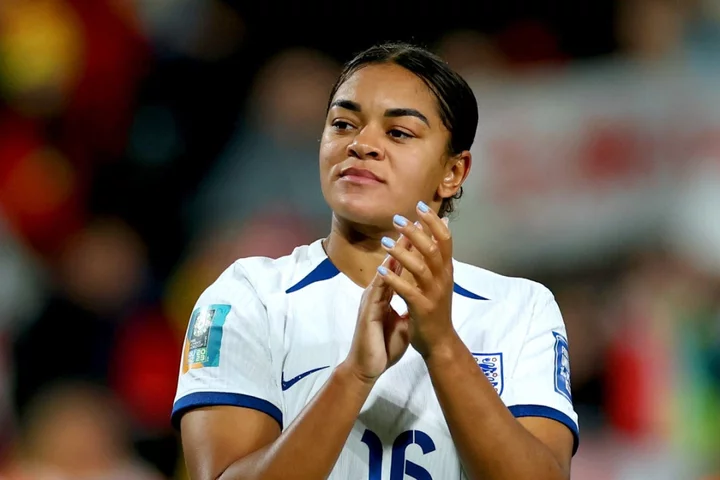
Jess Carter: Prospect of facing Spain in World Cup final will not sway my nerves
England defender Jess Carter is adamant even the prospect of playing Spain in Sunday’s World Cup final will not sway her steely nerves. While many footballers will claim they take a business-as-usual approach to even the biggest games, the declaration feels especially genuine when articulated by the laidback 25-year-old, who has been instrumental in ensuring the Lionesses have conceded just three goals in their unbeaten run to the title decider. The Lionesses have already assured themselves of a best-ever finish in a global showpiece by reaching this stage, and Carter is confident they can go one step further to secure England a first World Cup since 1966. Asked if she would have any stage fright on Sunday, Carter replied: “Personally, I won’t have. It’s football. “I’m not really a nervous person. I understand and know from the outside, it’s the World Cup final, your biggest moment. I play my best when I’m super calm. At the end of the day, it’s just a game of football. “We have to perform as we did in the first group game. Maybe some people have nerves but I think that will be challenged into positive energy come the night. “I’m super excited – I don’t think it has really sunk in yet. “There’s been such a quick turnaround between the last game and the next that you almost don’t have time to notice what’s been going on. It’s head down, rest, recovery and get ready to go again.” I think I chat with everyone and that’s something that a lot of the girls say, that I am super chill Jess Carter Each member of a team brings something different. Though Carter had not fully considered it, she acknowledged serenity could be seen as her signature strength. She said: “I think I chat with everyone and that’s something that a lot of the girls say, that I am super chill. I’ve had a couple of people feed back to say that it’s a really nice, I guess, aura to be around a little bit.” Carter’s journey to this point started later than many of her team-mates’. Though she started playing casually when she was “four or five”, the now 25-year-old did not join an academy until she was 15, following a successful trial with Birmingham and – in her own words – was not a “consistent presence” in England’s youth set-up. The Warwick native received her first senior call-up in 2017 and made her debut that November against Kazakhstan in a 2017 World Cup qualifier, but was not called back until nearly four years later, when then-new England boss Sarina Wiegman took a chance and named Carter in her first squad in September 2021. Carter has been vital this campaign, starting every game except England’s second – a 1-0 victory over Denmark – and rapidly adjusted when Wiegman switched systems from a 4-3-3 to a 3-5-2 after that match with Carter, captain Millie Bright and veteran Alex Greenwood forming the back three. She said: “When I didn’t play against Denmark, I wasn’t not bothered, but it was just like, ‘I’ve just played in a World Cup, I had more minutes than I thought I was ever going to get coming into this tournament’. I didn’t come into the tournament expecting to play at all. “I was so honoured to be part of the team. Obviously, of course, you always want to play every minute and when I spoke to Sarina and (heard) her reasons and our tactics, she’s going to make the best decisions that she thinks are appropriate to go and win a game.” Carter, who can slot into both defence and midfield, does wonder how her career might have looked different had she instead been afforded the opportunity to nail down a single position, admitting: “That’s the question I ask myself every single day. “It’s definitely something that’s a massive positive, but at the same time, sometimes I do wish that if I could just play this one position, absolutely smash it. Then I wonder what level I could get myself to if I could just focus on that point.” Make no mistake, Carter is competitive and is as determined to win the World Cup as the rest of her team-mates, but the unfailingly calm and collected character comes out again when asked if she has stopped to think about how lifting the trophy could change her life. She replied: “No. I’m just going to go home. I’m going to go home to my apartment, really and I don’t know, just chill.” Read More Charity boss speaks out over ‘traumatic’ encounter with royal aide Ukraine war’s heaviest fight rages in east - follow live The thrills, shocks and many brilliant moments of the World Cup in pictures Sweden beat Australia to win World Cup third-place play-off for fourth time We need to play game of our lives – Millie Bright issues World Cup rallying cry
1970-01-01 08:00
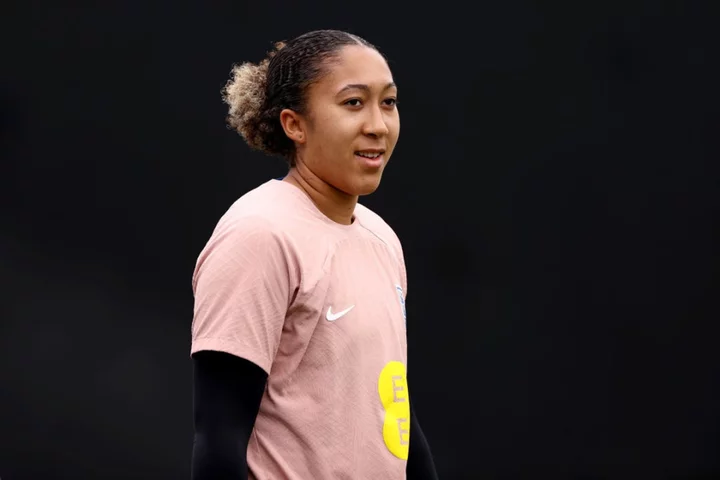
England vs Spain predicted line-ups: Team news ahead of Women’s World Cup final
Sarina Wiegman has a big decision to make as England face Spain in the Women’s World Cup final and the Lionesses look to win the game’s biggest prize for the first time. After successfully ending their run of semi-final defeats to beat hosts Australia in Sydney, Wiegman must decide whether she will bring star forward Lauren James back into her starting line-up for the final. James was sent off for stamping on an opponent in England’s last-16 win over Nigeria but has now served her two-match suspension is available to play in the final. England’s Ella Toone impressed with her performance against Australia and was also on the scoresheet as she scored the opening goal, so the Manchester United midfielder will be difficult to drop. But James was one of the players of the World Cup during the group stages, scoring three goals, and could be the difference for England as they look to win the World Cup for the first time. Here’s everything you need to know ahead of the World Cup final and find latest tips for the game itself here. When is England vs Spain? The Women’s World Cup final will kick off at 11:00am BST on Sunday 20 August at Stadium Australia, Sydney. What TV channel is it on? The World Cup final will be shown by both the BBC and ITV. Coverage on BBC One starts at 10am, while ITV’s coverage begins at 10:15am. It will also be available to watch online, on both the BBC iPlayer and on ITV X. What is the England team news? England have no injury concerns and the return of Lauren James means Sarina Wiegman has all 23 players available for the final. Wiegman faces a decision on whether to bring in James from the start, but is likely to stick with the team that performed so impressively against Australia. Mary Earps is a contender for the tournament’s golden glove and will start behind England’s back three of Jess Carter, Millie Bright and Alex Greenwood, with Lucy Bronze and Rachel Daly at wing-back. Should Ella Toone start, the midfielder will play alongside Kiera Walsh and Georgia Stanway, with James remaining an excellent option to have on the bench. England’s front two of Alessia Russo and Lauren Hemp have struck up a deadly partnership and were both on target in the quarter-finals and semi-finals. Chloe Kelly will be among the other attacking options on the bench. What is the Spain team news? Spain face a big decision of their own, with Salma Paralluelo scoring in both their quarter-final win against the Netherlands and in the semi-final win against Sweden after coming off the bench. Head coach Jorge Vilda may decide to keep the 19-year-old winger as an impact substitute, with Alexia Putellas set to remain in the starting line-up even though she is yet to come to life at the tournament. Predicted line-ups Spain: Coll; Batlle, Parades, Codina, Carmona; Teresa, Bonmati, Putellas; Caldentey, Hermoso, Redondo England: Earps; Carter, Bright, Greenwood; Bronze, Stanway, Walsh, Daly; Toone; Hemp, Russo Read More England stand on the brink of history — and a moment to change the game forever Ella Toone or Lauren James? Sarina Wiegman has already made the biggest decision of England’s World Cup Infighting and rebellion: How Spain overcame themselves to reach edge of Women’s World Cup glory Women’s World Cup TV schedule: How to watch every match today Sarina Wiegman thankful for ‘dream’ support as World Cup final set to unite country England vs Spain: Kick-off time and how to watch World Cup final on TV
1970-01-01 08:00

Last Chance Promos: Four Chances to Win on ANY College Football Bet!
A new college football season begins NEXT WEEK and you can lock in two extra chances to win big if you act fast.FanSided readers who sign up with FanDuel and Caesars sportsbooks and make first-time deposits of $10 or more before this weekend ends will be rewarded with a pair of second-chance bon...
1970-01-01 08:00
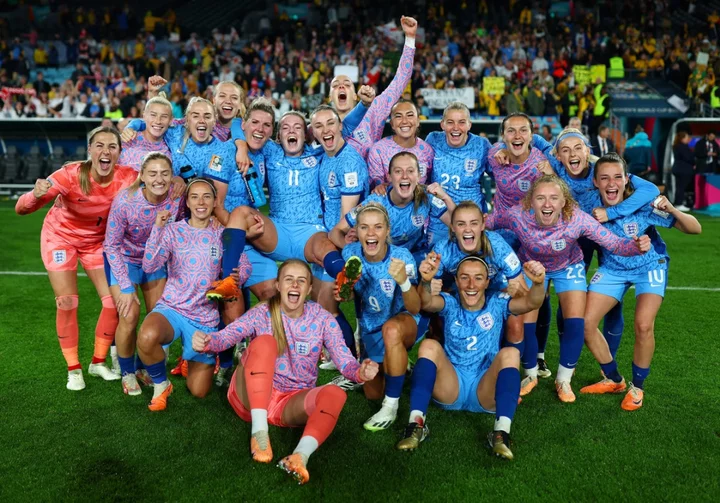
How to watch England vs Spain: TV channel and kick-off time for Women’s World Cup final
England play Spain in the Women’s World Cup final as the Lionesses look to bring home the game’s biggest prize for the first time. The nation is set to come to a halt as England play their first World Cup final, men’s or women’s, in 57 years. Manager Sarina Wiegman has urged her players to block out the “noise” of 1966 as England look to add the World Cup title to last year’s Euros triumph. The Lionesses reached the World Cup final for the first time with their 3-1 win over Australia in the semi-finals, with Wiegman’s side managing to stay cool to defeat the hosts with a clinical display in Sydney. Spain, who are also playing the first Women’s World Cup final, have navigated a player mutiny off the pitch and questions surrounding their manager Jorge Vilda, but ‘La Roja’ remain dangerous opponents and are led by their contingent of Barcelona stars. Here’s everything you need to know ahead of the World Cup final and find latest tips for the game itself here. When is England vs Spain? The Women’s World Cup final will kick off at 11:00am BST on Sunday 20 August at Stadium Australia, Sydney. What TV channel is it on? The World Cup final will be shown by both the BBC and ITV. Coverage on BBC One starts at 10am, while ITV’s coverage begins at 10:15am. It will also be available to watch online, on both the BBC iPlayer and on ITV X. What is the England team news? England have no injury concerns and the return of Lauren James means Sarina Wiegman has all 23 players available for the final. Wiegman faces a decision on whether to bring in James from the start, but is likely to stick with the team that performed so impressively against Australia. Mary Earps is a contender for the tournament’s golden glove and will start behind England’s back three of Jess Carter, Millie Bright and Alex Greenwood, with Lucy Bronze and Rachel Daly at wing-back. Should Toone start, the midfielder will play alongside Kiera Walsh and Georgia Stanway, with James remaining an excellent option to have on the bench. England’s front two of Alessia Russo and Lauren Hemp have struck up a deadly partnership and were both on target in the quarter-finals and semi-finals. Chloe Kelly will be among the other attacking options on the bench. What is the Spain team news? Spain face a big decision of their own, with Salma Paralluelo scoring in both their quarter-final win against the Netherlands and in the semi-final win against Sweden after coming off the bench. Head coach Jorge Vilda may decide to keep the 19-year-old winger as an impact substitute, with Alexia Putellas set to remain in the starting line-up even though she is yet to come to life at the tournament. Predicted line-ups Spain: Coll; Batlle, Parades, Codina, Carmona; Teresa, Bonmati, Putellas; Caldentey, Hermoso, Redondo England: Earps; Carter, Bright, Greenwood; Bronze, Stanway, Walsh, Daly; Toone; Hemp, Russo Read More England stand on the brink of history — and a moment to change the game forever Ella Toone or Lauren James? Sarina Wiegman has already made the biggest decision of England’s World Cup Infighting and rebellion: How Spain overcame themselves to reach edge of Women’s World Cup glory Sarina Wiegman thankful for ‘dream’ support as World Cup final set to unite country England vs Spain team news and predicted line-ups Women’s World Cup LIVE: England set for ‘game of our lives’ in final
1970-01-01 08:00
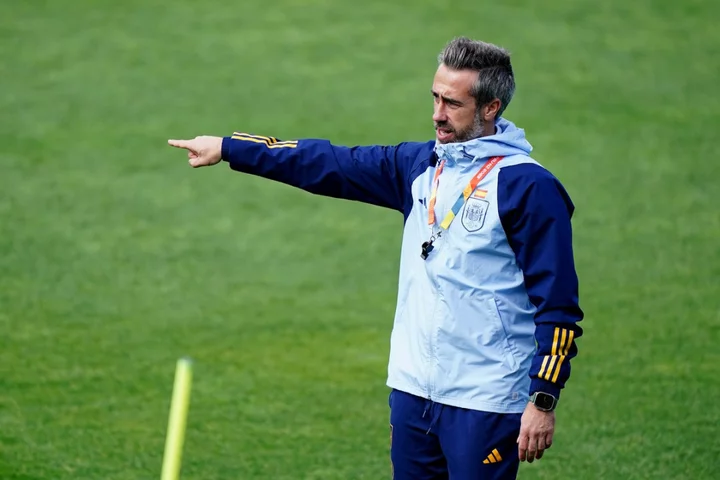
Spain boss Jorge Vilda shuts down questions on his relationship with his players
Spain head coach Jorge Vilda batted away questions about his country’s absent stars on the eve of their World Cup final clash with England. Vilda has guided Spain to their first final amid a backdrop of controversy and rows over the treatment of the team. The showpiece game in Sydney takes place on Sunday morning, less than a year after 15 players staged a mutiny. The arguments, which broke out in September last year, threatened to derail Spain’s hopes before an uneasy peace was brokered ahead of the World Cup. Dubbed ‘Las 15’, the players who walked away were Patri Guijarro, Aitana Bonmati, Mapi Leon, Mariona Caldentey, Sandra Panos, Claudia Pina, Lola Gallardo, Ainhoa Moraza, Nerea Eizagirre, Amaiur Sarriegi, Lucia Garcia, Ona Batlle, Leila Ouahabi, Laia Aleixandri and Andrea Pereira. If an accommodation has been reached, it appears to be a delicate one. Only three members of the 15 – Bonmati, Caldentey and Batlle – were included in Vilda’s squad for the finals. Despite the unrest and uncertainty, Spain have made it through to the final following a late win over Sweden in the last four. What we want to do tomorrow is to be the best in the world and we'll do this by winning the final Jorge Vilda Asked early on at his pre-match press conference about the relations between himself and some of his players, Vilda replied: “Next question please.” Pushed on whether not having some key players in Australia made him “sad”, Vilda seemingly ignored the line of questioning. “What we want to do tomorrow is to be the best in the world and we’ll do this by winning the final,” he said. Spain lost 2-1 to England after extra-time at the quarter-final of the Euros last summer as the Lionesses went on to lift the trophy on home soil, with Sarina Wiegman and her players looking to add further silverware on Sunday. “It was a game that we know we were on top, but the result is what counts,” Vilda said of the loss at the Amex Stadium, “Games against England really require our best. She (Wiegman) is a trainer that with her results has shown the fruits of her work, it’s not easy what she has achieved. “You don’t achieve this without excellent preparation and star players. It will be a tactical match and it’s a final that we’re going to fight with everything.” Read More Charity boss speaks out over ‘traumatic’ encounter with royal aide Ukraine war’s heaviest fight rages in east - follow live On This Day in 2017: England win first day-night Test to be held in UK Steve Cooper feels Nottingham Forest showed a new side to them with late winner Manchester United’s new-look midfield must click quickly – Erik ten Hag
1970-01-01 08:00
